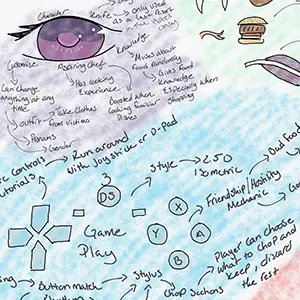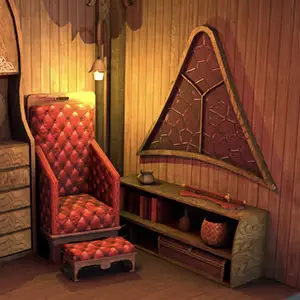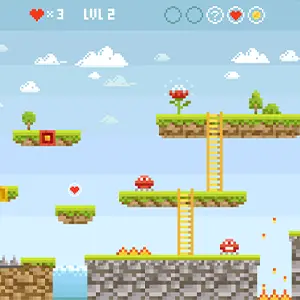Game Programming (BS)
Game Programming (BS)
Students will develop strong problem-solving skills, learn to write efficient code, and collaborate with artists and designers to provided optimized solutions for game design. The BS in Game Programming curriculum emphasizes the data structures, algorithms, and software architecture techniques used by the industry to create cutting edge games.
Bachelor of Science (BS) Degree
Available Online & On Campus
Core Classes












Unit Requirements
| Major Coursework | Units |
|---|---|
| Core | 36 |
| Major | 30 |
| Electives | 9 |
| Liberal Arts | 45 |
| Total | 120 |
Degree Requirements
BS GAME PROGRAMMING DEGREE REQUIREMENTS
- Minimum grade of C- in all major coursework and the following:
LA 107 Writing for the Multilingual Artist
or LA 108 Composition for the Artist
LA 255 College Math
LA 271 College Algebra with Geometry
LA 286 Discrete Mathematics
LA 288 Vector, Matrices, & Transformations
- Minimum 2.0 GPA and the following general education requirements:
1 Art Historical Awareness course
1 Written Communication: Composition course
1 Written Communication: Context & Style course
1 Written Communication: Critical Thinking course
1 3D Math course
1 Fundamental Math course
1 Applied Math course
1 Discrete Mathematics course
1 Historical Awareness course
1 Cultural Ideas & Influences course
1 Employment Communications and Practices course
After above general education requirements are met, take Liberal Arts electives as needed to fulfill the Liberal Arts unit requirement.
Additional Information

Program Learning Outcomes
Undergraduate students will meet the following student performance criteria:
Architecture
- Use architectural design patterns as appropriate to improve program cohesion and limit coupling between systems
- Write professional-quality technical documentation
- Create data-driven code
Implementation
- Implement appropriate data structures to manage program data
- Write efficient algorithms to solve programming problems
- Write defensive, error-free code
Professionalism
- Conform to industry standard software engineering practices, such as commenting, following a coding standard, following naming conventions, etc.
- Demonstrate mastery of industry standard tools
- Produce a professional portfolio which meets industry standards
- Work cooperatively and effectively in a professional production environment
Academy of Art University Learning Outcomes
Graduates of the Academy of Art University will demonstrate the ability to:
- Produce a body of work suitable for seeking professional opportunities in their chosen field of art and design.
- Solve creative problems within their field of art and design, including research and synthesis of technical, aesthetic, and conceptual knowledge.
- Communicate their ideas professionally and connect with their intended audience using visual, oral, and written presentation skillsrelevant to their field.
- Execute technical, aesthetic, and conceptual decisions based on an understanding of art and design principles.
- Use professional terminology to evaluate their work and work in the field.
- Recognize the influence of major cultural and aesthetic trends, both historical and contemporary, on art and design products.
- Learn the professional skills and behaviors necessary to compete in the global marketplace for art and design
- Engage with a variety of communities beyond the classroom through internship opportunities, study abroad programs, athletics, student interest clubs, and participation in collaborative, civic, and pro bono projects.
*Semester plans are subject to change at any time. Semester breakdowns displayed are suggested and additional options are available to help customize your educational experience. Speak to an admissions or student services representative for more information. Please see our catalog for more details at: https://catalog.academyart.edu